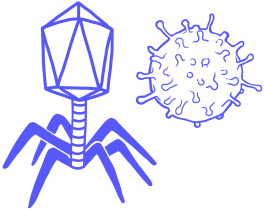Research Data Services is excited to announce the new data subscription “Statista” free for all SHU faculty, students, and staff. The SHU community can access over 1,000,000 statistics on more than 80,000 topics through this subscription. University Libraries, where Research Data Services resides, is grateful to the Office of Grants & Research (OGRS) who funded this subscription as part of a $1.5 million grant from the State of New Jersey through its Opportunity Meets Innovation (OMI) Challenge Grants program.
The data in Statista are collected from over 22,500 data sources such as government databases, trade publications, scientific journals, and over 170 different industries and over 160 countries and presented to users in charts, tables, and infographics. Statista is one of the reliable data sources for Market Data, Market Research, and Market Studies. With over 200 data and research specialists, all published data and reports must pass a tested-multi-stage peer-review process. The platform of Statista supports the following languages: English, Spanish, German, and French.Seton Hall faculty, students, and staff can access their accounts using
Seton Hall University Libraries Databases. Under the “Find” tab, there will be the Seton Hall University Libraries A-Z Databases list. Logging to the Statista platform through SHU institutional subscription grants users access to free pdf, PPT, XLS, and PNG files. Users should see :Welcome, Seton Hall University!” on the upper-left side of their screen to ensure full access to the subscription.
Research Data Services will host a “Find Data for Your Research: workshop featuring the newly added subscription, Statista. Participants will learn how to navigate the platform and download and cite Statista data. Registration for the workshop is through RDS’s Calendar.
Interested in more Research Data Services Workshops?
Research Data Services at University Libraries will be holding Data Summer Workshops online from June 21 to August 30. The RDS data classes provide students, faculty, and staff with hands-on training sessions in data management, analysis, and visualization using different quantitative and qualitative software. These data workshops are beneficial in preparing students for research methods and data analysis classes. Moreover, these data classes help students with their thesis and dissertations. This Summer training will cover Stata, Atlas.ti, ArcGIS, RStudio, Jupyter, Qualtrics, SPSS, and PowerBI.
As mentioned above, in addition to software training, the RDS will introduce the newly added data subscription “Statista.” featured in the workshop “Find Data for your research in ICPSR, Statista, PolicyMaps, and The Living Atlas of The World.” In this workshop, the RDS team takes you on a journey to discover meaningful datasets suitable for your research interests. The SHU community has free access to ICPSR, PolicyMap, The Living Atlas. of The World, and Statista.
Categories: Science and Technology
For more information, please contact:
- Samah Alshrief
- (973) 275-4805
- data.services@shu.edu



